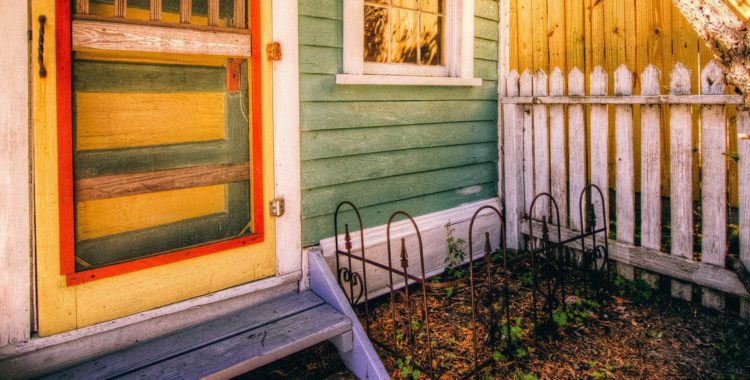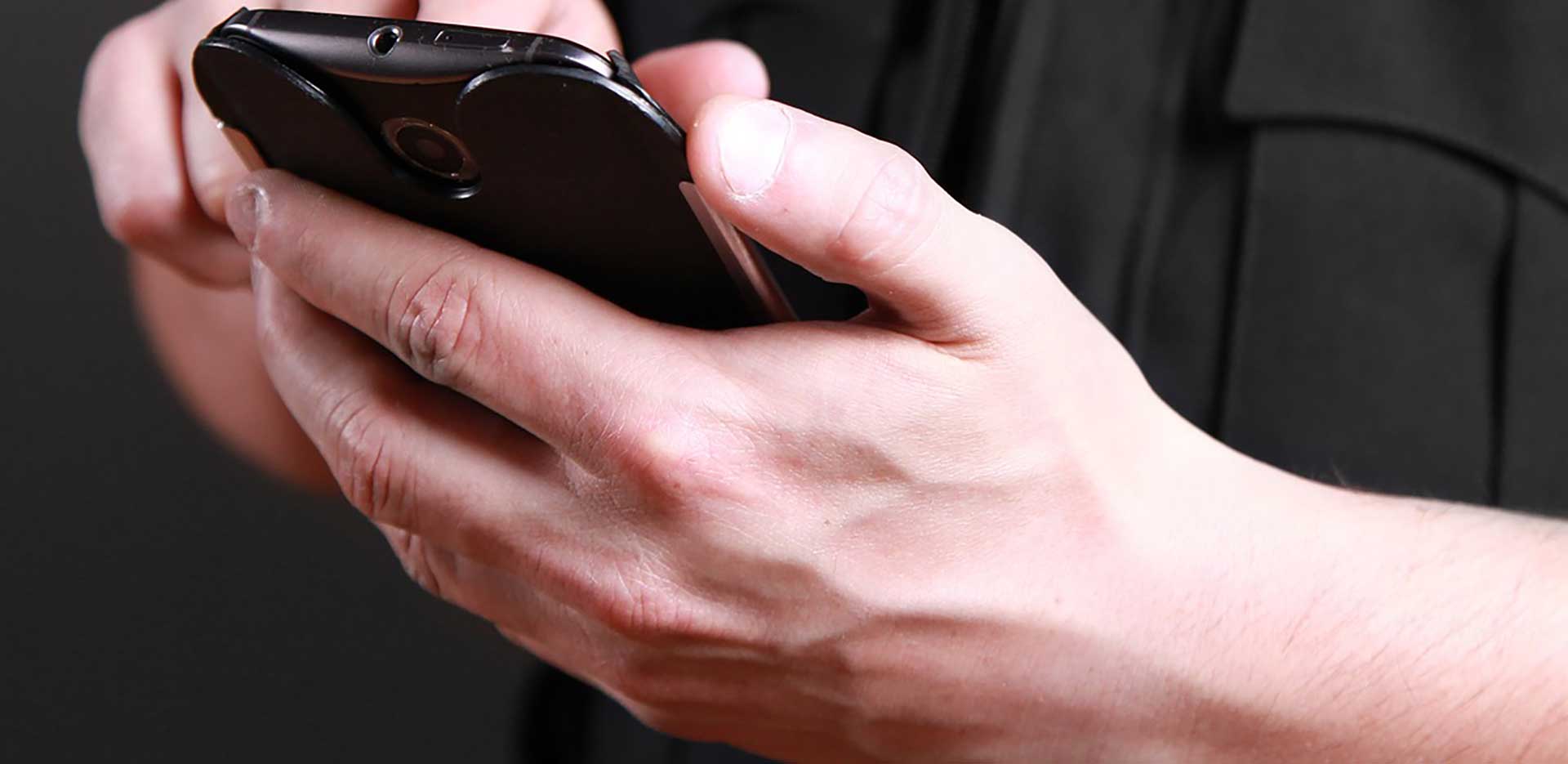What To Do When Police Are At Your Door
Do you know your rights when the police are at your door? Not everyone does. It’s in the best interest of law enforcement that you don’t. Knowing your rights prevents police from getting information out of you. It keeps you from accidentally incriminating yourself, and it also keeps you from sharing information that makes you look guilty when you’re innocent.
There are many times when not knowing your rights can hurt you. When you’re being questioned, when you’ve got the police at your door, when you call police to report a crime, or when you’re in jail. If you don’t know your rights, you could end up in big trouble.
That’s why I’ve decided to write a 4-part “Know Your Rights” series. I see clients every day who probably wouldn’t be facing severe charges if they had just known their rights. In the first part of this series, I cover what to do when police are at your door.
What To Do When Police Are At Your Door
Imagine that you’re sitting in your living room watching TV. You haven’t done anything wrong and you aren’t expecting visitors. All of the sudden there’s a knock at the door. When you look through the peephole to see who’s outside, it’s the police. Two officers are standing right in your doorway. What do you do?
In that situation, the “flexing your rights” response would be to slowly and quietly back away from the door, sit back down on your couch and wait for the officers to leave. But what if they’re just there to let you know that a family member has been critically injured? What it they’re alerting you to a criminal prowling the building?
It’s a tough decision to make. You’re within your rights to ignore anyone knocking at your door. What if you were in the bedroom or bathroom and didn’t hear a knock? You obviously wouldn’t be in trouble for not answering your door. And the police don’t know you’re there. Even if they did, you are within your rights to not respond to a knock at your door.
Here are the options you have when police are at your door:
- Open the door and talk to them. (Not advised!) If you open the door, they could push their way in without the “breaking” part of breaking and entering. Or they can easily look around your home and could potentially see or “smell” something that gives them the right to search without your approval. If you choose to do this, always close the door behind you!
- Open the door with the chain latch closed and speak to them through the small opening. (Not advised!) If you do, keep your foot against the door to prevent them from opening it more than you want. This way, they cannot see inside your home very well. But this isn’t foolproof. It’s a well-known tactic for an officer to claim they smelled marijuana when later it was discovered that there was no marijuana on the premises. Opening the door, even a crack, is risky. You could fall victim to the Plain View Doctrine (or “Plain Smell”).
- Exit out a back door and come around to the front to speak with the officers. (Still not advised!) This makes it clear that you will not allow a warrantless search of your property. Be aware that if you have a warrant, the officers most likely will arrest you on the spot. If they know you have a warrant, it’s their legal duty to take you in. If they’ve arrested you, they have the right to search the area where you were arrested.
- If you know you have a warrant of any kind, even for parking tickets, call an attorney from the couch. (Better yet, call an attorney as soon as you realize you have a warrant.) If the doors to your home are locked, police may not enter without a warrant or reasonable suspicion of a crime being committed inside. This can sometimes be a gray area in court. Everyone as a habit should keep all doors locked at all times. If police knock and you don’t want to answer, you’re not having to lock it while they’re at the door. They may consider that suspicious. If officers are forced to break in to conduct a search, it will be harder for them to convince a judge you let them in when there are clear signs of a busted door.
- You can yell through the door, asking them what’s going on. They’ll likely tell you to open up again. Continue to ask them what’s going on. If you’ve chosen to leave the door closed, there’s nothing they can legally do but answer your question or go away. The exception is if they claim to hear rustling or a toilet flushing. They can claim they suspected someone was flushing evidence of a crime. Don’t flush the toilet when the police are at your door! And tell everyone in the home to be still and not move or make any noise.
- You can ignore the knock, and if they don’t have a warrant they will eventually leave.
What happens if instead of knocking, they yell “Police, Open up!” and it seems like they might be coming in?
You may still ignore the knock, but realize they may have an arrest warrant for you or someone in your home. And it could get ugly as witnessed in a recent New York Times article about bloody search warrant raids. Or they may have a search warrant or be at the wrong house, or they may be looking for a former tenant. It’s possible they could be trying to intimidate you and would leave if you ignored them. Or they could have a SWAT team ready to knock down your door.
In this case, you still have the options above. You also have another option. You could ask what they want through the closed door. If they keep telling you to open up, simply tell them “If you have a warrant, slip it under the door.” At that point, they will let you know if they have a warrant. If they don’t, they’ll be forced to tell you why they want you to open the door. Without the warrant, you can refuse to open the door.
What’s the bottom line? Repeat after me: “No warrant, no search!”
What If Police Are At Your Door With a Search Warrant?
If police are at your door and have a search warrant, review it before opening the door. Make sure to check the full address and any other factual information. If the address on the warrant is wrong, inform them. You do not have to open the door if the address is incorrect.
If you recently moved into the home and you believe the warrant may relate to a previous occupant, tell them. They will probably still demand to search the premises.
Review the Warrant
When reviewing the warrant when police are at your door, look to see which specific areas are included in the search warrant. Tell them you do not consent to a search, but will allow them to execute the warrant as it is written. Take note of where they’re searching. Do they enter your garage or attic? Are they in the basement or a backyard shed? Did they enter vehicles in the driveway or garage? Did they look inside a boat or ATV on the property?
A search warrant should cover specific areas, and if police search outside those areas, they’ve put their entire investigation at risk. Pay attention.
If the warrant is valid and covers the residence you are currently in, you must open the door.
After You Let The Police In Your Door
Once the police come in, cooperate and be polite. Video their search if you can. Stay back at a distance and don’t interfere. If they ask you to open a lock or help them lift something, cooperate if you are physically able and it will prevent them from breaking your property. When the officers are finished with their search, ask for a receipt for any items removed from the home.
If police are at your door and it’s an arrest warrant for you or someone living at the home, check all of the information on the warrant to verify that it’s correct. Accurate name, date of birth, everything. If anything is incorrect, inform them and tell them that the warrant must be for someone else. Assuming it’s the correct address but no one by that name lives at your home, tell them. It could be for a prior occupant who didn’t change their legal address. This doesn’t guarantee they won’t come in anyway.
What if you’re arrested and your spouse or roommate is in the home? Can police officers search your home without you giving consent? In a 2014 case, Fernandez vs. California, the Supreme Court found that another occupant of the home may give consent to search the home. Anything found during that search can be used as evidence against you. If you live with someone, make sure you talk about what happens if police are at your door. For both of your protection, you should both agree that police will not be allowed in the door without a search warrant.
If you refuse to answer questions and you get pushback, inform them that you won’t be answering any questions without your attorney present. Call your attorney.
The most important piece of information is that you do not have to submit to a search without a warrant, and you don’t have to talk to police at your door.
Even if they do have a warrant, they break down the door, or they tell you that if you talk to them they’ll go easier on you. Don’t let anything the police say convince you to give up your right to remain silent. And always remember: “No warrant, no search!”
As soon as police leave your door, call an attorney to help you understand what’s happening and what you can do to protect yourself.
COMING SOON: Upcoming articles in this “Know Your Rights” series:
Know Your Rights When You Call Police
Know Your Rights When You’re in Jail
Know Your Rights When Police Are Questioning You
If you would like to find out more about having Getz & Braverman, P.C. represent you or provide legal advice, email, live chat, or call us at 718-618-5567. We also accept text messages at 917-734-7583.
There are many sources of legal information available online. These articles and information on our blog and website do not constitute legal advice. “Attorney Advertising” and prior results do not guarantee a similar outcome. We adhere to all confidentiality requirements, but until we have accepted your case, no attorney-client privilege is established. The choice of selecting an attorney is an important personal decision that should be carefully considered. If you need legal advice, please contact an attorney directly.
Some of the case summaries, reports of past results and individual lawyer biographies on this website describe past matters handled for clients of the Firm. These descriptions are meant only to provide information to the public about the activities and experience of our lawyers. They are not intended as a guarantee that the same or similar results can be obtained in every matter undertaken by our lawyers.
ARE YOU DEALING WITH THE ISSUE IN THIS ARTICLE?
Let us help you. We post these articles to help you understand the issues you may be facing, but we welcome your questions. Contact us if you want more details or need to ask about a specific case. We’re here to help
718-618-5567




